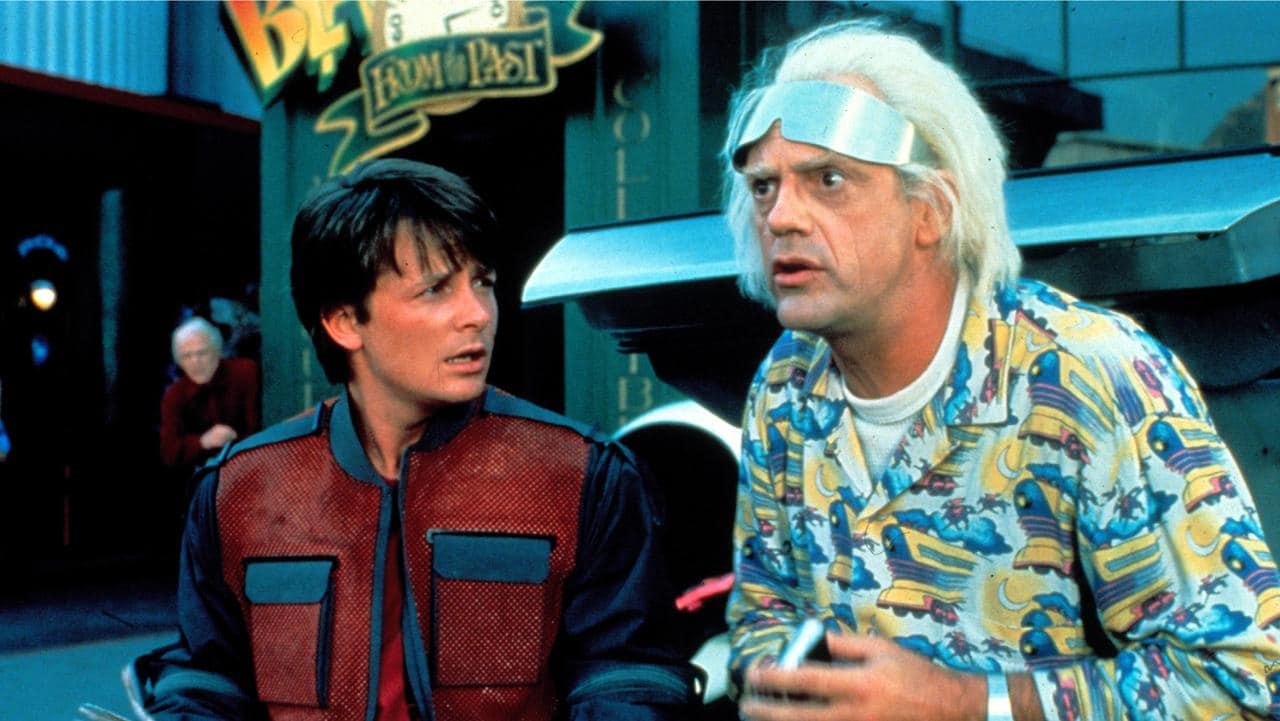
Technology continues to grow and grow, which just so happens to be the norm these days. However, the growth of technology was a lot slower until the late 20th century, specifically the 1980s and 1990s.
The development of personal computers, the Internet, cell phones, robotics, and other technology got the world’s attention, and it most certainly got Hollywood’s attention, who created movies about these developments. It was a very exciting time during these two decades.
However, filmmakers are storytellers and do not have any real knowledge of technology. The 80s and 90s were the very early era of the computer age, so it was too early back then to tell where technology was going, because almost anything seemed possible. Hollywood took advantage of this ignorance and made many movies about how “cool” and “advanced” the future would be.
These movies use technobabble and other complex jargon to sound accurate, when a lot of the time it is used to sound cool and “computer-y”. To be fair, movies are made for entertainment, so they do not have to be completely accurate.
These days, a lot of these movies are dated, claiming that particular technology would exist by a certain year, and those ideas never came to fruition (sometimes for the better). Below are 10 movies that said what advanced technology the world would have, only to look silly these days (even if the movie itself is good).
10. Disclosure (Barry Levinson, 1994)
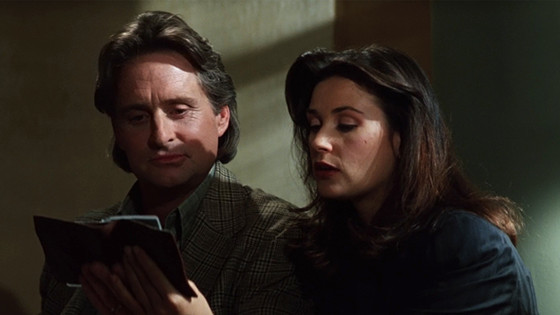
“Disclosure” is more about sexual harassment in the workplace than technology, and focuses more on the steamy sex scenes between Michael Douglas and Demi Moore. Since it starred Douglas, who had previously starred in the popular erotic thriller “Basic Instinct”, some may say “Disclosure” is like a technological version of “Basic Instinct”, but set in an office.
On that note, although “Disclosure” was set in the present, its technology was definitely more than what the real 90s had to offer. A great deal of technology that exists in real life is made to improve efficiency in the workplace, so “Disclosure” got that part right. However, the way the technology is presented is silly and wrong.
The depiction of hacking and emails and Internet technology is very 90s. The data storage VR system used by the company looks very extravagant and “impressive” for the sake of being impressive.
A real life virtual reality program designed for an office would look far more basic than this, and in today’s world, these programs are still plain looking. Sci-fi author Michael Crichton wrote the novel on which “Disclosure” is based, so naturally there was going to be some fantastical technology involved, regardless of the story’s everyday office setting.
9. The Lawnmower Man (Brett Leonard, 1992)
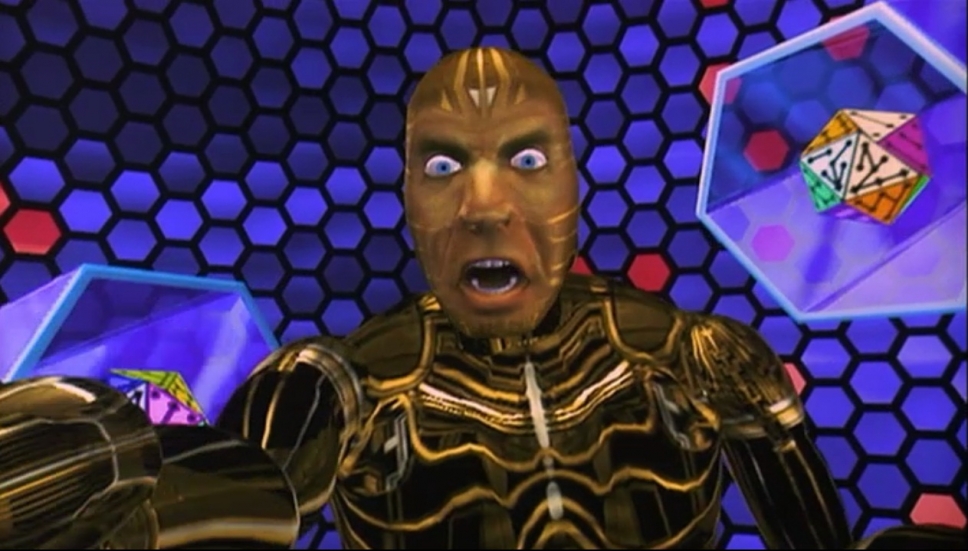
“The Lawnmower Man” is an excellent sci-fi/thriller from 1992 that depicted the rise of virtual reality technology. Although virtual reality technology has been booming more in recent years, it was really something to be reckoned with in the early 90s.
Although virtual reality has become used in recent years, it is still nowhere near as exciting or popular, or as cheesy looking, as it does in “The Lawnmower Man”.
Fortunately, it is also not as dangerous to the world, either. The film’s protagonist Dr. Angelo (Pierce Brosnan) believed virtual reality was the key to the evolution of the human brain, as he tried to use virtual reality to make a simpleton named Jobe (Jeff Fahey) smarter. But so far it is just being used to play video games, like on the Oculus Rift.
A caption at the start of the film says virtual reality will be widespread by the turn of the millennium. Jobe also states to Dr. Angelo by that by 2001, there won’t be anyone who won’t be hooked into virtual reality. Although the Internet was very widespread by 2001, this did not happen with virtual reality.
8. Escape From L.A. (John Carpenter, 1996)
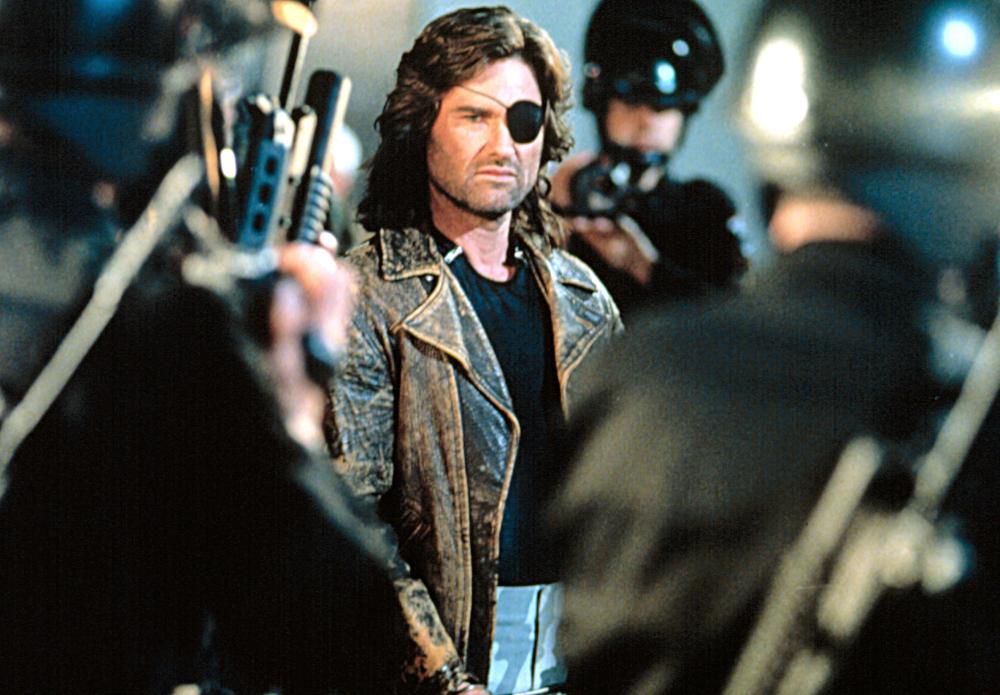
Although this film’s predecessor, “Escape From New York”, was made long before its sequel and is a superior film, the sequel’s depiction of both the future of the United States and technology is far more ambitious, and therefore wrong.
In the first film, New York City was a giant prison by 1997 (which was of course wrong), and by 2013 Los Angeles suffered from a big earthquake that separated it and became another giant prison, making it both physically and politically no longer a part of the United States. Aside from the political predictions of 2013, the technology in the film was wrong as well.
The main piece of technology used in this version of 2013 are the holograms that are used to trick people into thinking they are interacting with someone before that person attacks them.
The most prolific use of holograms in reality is during concerts to make it look like a dead musician is performing. The film also has holographic technology that seems similar to Skype in that people can talk and see each other from different places.
7. Strange Days (Kathryn Bigelow, 1995)
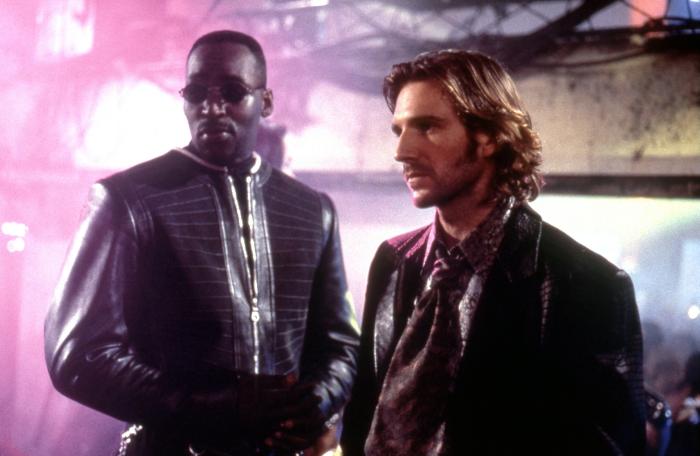
“Strange Days” is a very good thriller from the 90s and has a great cast, but its predictions of technology were ambitious. For a film made in 1995, it was confident that virtual reality technology would really boom in only four years for the film’s 1999 setting. So unsurprisingly, “Strange Days” did not predict the future correctly.
In the film, mini-discs are sold illegally for users to connect to their minds and relive their old memories and fantasies. The film’s protagonist, a mini-disc hustler akin to a drug dealer, comes across a mini-disc that shows a murder from the victim’s point of view that is very disturbing.
While the technology depicted in the film is a fascinating idea, it still does not exist. Not only did this type of technology not exist in the real 1999, but its general depiction of 1999 Los Angeles was also wrong.
6. Timecop (Peter Hyams, 1994)
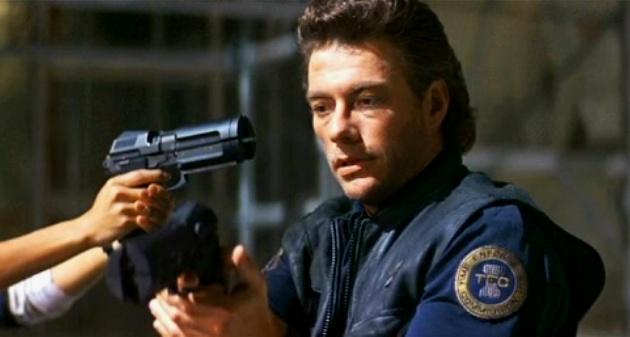
The 1994 film “Timecop” predicted that by 2004, time travel technology would be available. Criminals would be using it for their own illegal gains, and to change the outcome of history in their favour, and timecops would have to apprehend said criminals. The Time Enforcement Commission started in the fictional 1994 was still going strong by 2004; such a law enforcement agency still does not exist.
These time travel predictions were a big claim that it would only take 10 years for time travel technology to become real. The film also claimed that voice-activated, self-driving cars would exist by 2004.
To be fair, “Timecop” is a Jean Claude Van Damme film; that fact in itself means that the film would made for purely entertainment purposes and nothing more. The bottom line, however, is that the film is still wildly inaccurate.